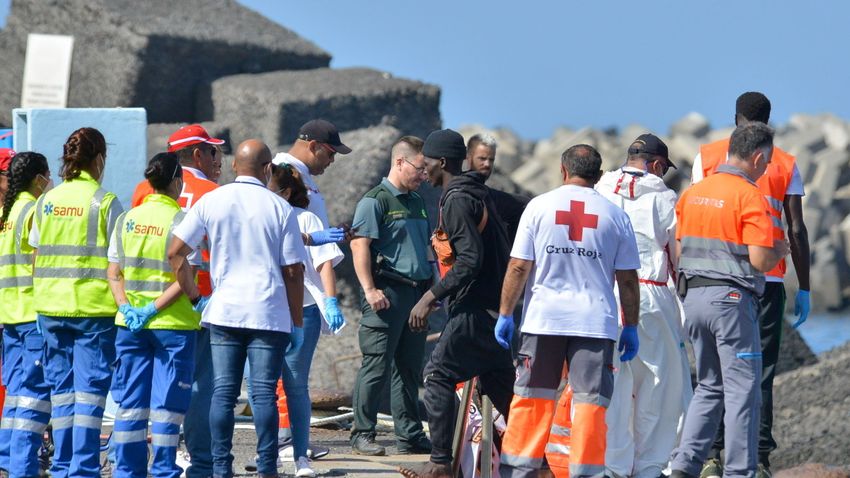The Spanish government will provide 20 billion Hungarian forints to support the care of illegal immigrants arriving in the Canary Islands, the minister responsible for immigration announced. José Luis Escrivá personally visited the smallest island in the archipelago, El Hierro, whose reception system collapsed weeks ago after an unprecedented number of African citizens ended up there.
Escrivá said that the island, with a population of only 11,000 people, will now receive special attention, and nine million euros have already been allocated to it to build reception facilities of higher quality and capacity, so that it will no longer run out. In a situation similar to the current one.
The Minister announced that aid worth 50 million euros will be approved soon, which can only be used by the Government of the Canary Islands this year and in 2024 for the purpose of receiving and providing refugees coming there. The money can be used to buy food, beds, portable toilets and build new reception centers so that people do not have to stay in monasteries or other buildings that have not been used for decades, as happens now due to space constraints. . In addition, the amount will cover the costs of thousands of African children who have arrived unaccompanied.
This decision comes after the conservative president of the Canary Islands, Fernando Clavijo, strongly criticized both the central government and the European Union weeks ago for not providing assistance to the region at a time when it is facing an unprecedented migration crisis.
In addition to financial assistance, Escrivá asked other Spanish autonomous regions to cooperate. In his opinion, they should show greater solidarity with the Canary Islands and their seizure of the majority of African minors who arrived there.
Although the request appears to be just a formality, last week the province of Huesca on the peninsula was surprised by the transfer of two hundred illegal immigrants who originally came to the Canary Islands, and no prior consultations or approval from the government had been carried out regarding this. Regional leaders. Moreover, there were no children among the transferees. Escrivá also noted that their plans include opening reception centers in Seville and Madrid, where they will be able to transport refugees en masse.
According to Interior Ministry data, 23,537 people ended up in the archipelago by October 15, which is 79 percent more than the same period last year. Acting Interior Minister Fernando Grande-Marlaska announced last week that they will try to stop the wave of refugees and that two gendarmerie helicopters will be put into service, which will try to intercept the migrant mafia along the African coast, especially in Senegal and Africa. Mauritania, reducing the number of boats full of refugees leaving.
The move is urgently needed, with more than 1,100 illegal migrants arriving in the Canary Islands on Saturday alone, including the most volatile region of El Hierro, where people must automatically be transferred elsewhere because there is no room for them. In addition, a boat arrived with them, which was considered a historical record, with 320 people traveling on it at the same time.
Meanwhile, the Canary Islands police are no longer concerned only about the large number of illegal immigrants. According to their information, several people showed symptoms of tuberculosis and were taken to the hospital. They said that migrants come from countries where they do not receive adequate health care in the first place, and that they are tossing and turning in open waters for several days, and as a result many arrive cold, and then, due to the lack of presence in space, they do not receive adequate care on the islands, so their condition continues to deteriorate. .
The police are most concerned about the fact that a large number of their employees are not protected against the disease, as certain regions in Spain stopped mandatory BCG vaccination for children as early as the 1970s.
Cover photo: The Spanish Sea Rescue Service and the local Red Cross welcome illegal African migrants trying to reach Europe at the port of La Restinga on the island of El Hierro in the Canary Islands (Photo: MTI/EPA/EFE/Gelmert Finol)












































